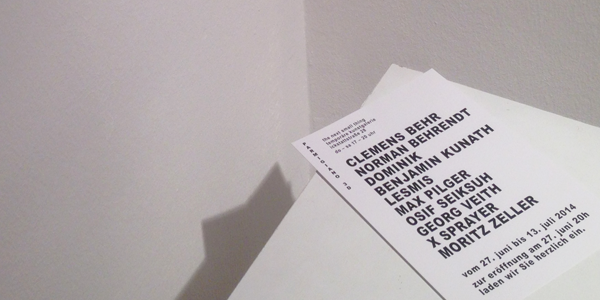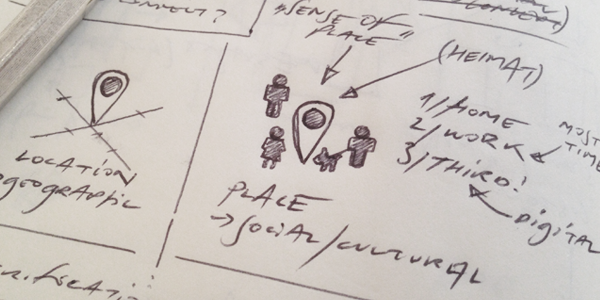The Next Small Thing is a unique digital venture platform connecting a
genuine portfolio of 10+ business ideas based on access and insights in various
industries with professional early stage execution processes and structures.
II. Contact
The Next Small Thing
Ickstattstr. 28 80469 Munich info@tnst.de
III. Blog
Z’apping
27.08.2016
Looking at the decreasing browser usage on smartphones and the still sky-rocketing app
usage, one can get the impression that the smartphone is more likely a progression of a TV, than a computer.
Instead of pressing buttons on a remote control to tune into channels, we now tap button-shaped icons to
open apps. In both cases most likely to satisfy our entertainment motivations with contents we passively
consume (browsers, utilities like e-mail and productivity together account for less than 30% of the
smartphone time spent).
The discussion has left a couple questions with us:
/Is a phablet in the future just a mobile smart-tv?
/When will app zapping (z’apping) be implemented as a native gesture based tool across mobile platforms?
/Are we going to experience full-screen advertising breaks instead of banners inside apps?
Not guilty (anymore)
25.08.2015
Guilt is a cognitive experience that occurs when a person realizes or believes – accurately or not – that he or she has compromised his or her standards.
Consuming social media on Facebook, Instagram, Twitter or YouTube, we often compromise our standards by crossing the thin line between the entertainment needed to refresh and re-focus, and completely losing focus, by getting lost in contents, which not necessarily add to our general education and knowledge.
Therefore guilt is a key emotional component of our decisions (or better: weakness of will) to consume social media - something we all know from personal experience.
Discussing this, we came across an idea: what if there was a channel/source/medium, that randomly displayed distractive/ entertainment contents as well as serious content that would add to our general education and knowledge? Would we still feel guilty consuming the content compromising our standards, if the decision to do so was taken by a machine, which could also have provided quality educational content?
Momentum
18.08.2015
Projects gain momentum just like objects. We need to apply a certain force over a certain period
of time.
Momentum = Force x Time
Since time is relatively stable, it’s force that allows some projects to gain momentum faster than others.
Just as described in Newton’s second law:
Force = Mass x Acceleration
The project we are working on and which has kept this blog quiet in the last months has a lot of mass.
Now it finally starts moving with the velocity, which we think is needed for a successful launch.
Looking at physics again, we are quite optimistic. Because if two objects are moving with the same velocity,
one with twice the mass of the other also has twice the momentum.
The way we access and organize contents hasn’t changed much in the last 150 years.
10.02.2015
New devices in our hands may have changed the places and frequency we access contents, but not
the general context. Since daily newspapers took off, time determines the relevance of most contents. And
whilst then we used to put newspapers in piles, we are now pilling things up in streams or feeds.
Challenge: with more and more contents being published and time limiting the relevance of contents to the
moment they are published, we need additional personal contexts to literally stay on top of our piles.
Search and Social have become huge personal contexts, enabling us to access and organize relevant contents
based on our needs (search/active) and our peers preferences (social/passive).
Now, what about location? Things in our proximity naturally become (and stay) relevant for us. What if we
could use the location-based capabilities of our now first-screens to access, discover and organize every
content where and when relevant for us, not just when published, re-published or searched?
Well, we think we have an idea there, Everythere.
Postcard from Plato
06.09.2014
Stumbling upon the following quote attributed to Plato: „Those who tell the stories rule
the world“, we were discussing whether it has turned into „Those who listen to all stories rule the world“.
Well, hopefully political leaders still sometimes listen to the stories of the giants on who’s
shoulders we are standing on.
Inaction as the most challenging form of action
(or: Why society works).
28.07.2014
Since the last post has pointed out how hard inaction for individuals is, the
participants of the Convoco Forum – a multidisciplinary debate platform for economy, politics,
law, science, culture and media – this weekend have highlighted its importance for society.
Whilst other mammals always act based on their perception of danger and opportunities
(even if there are no opportunities » displacement activities), we are the only species able
to choose inaction.
As a major pillar of civilization inaction is the foundation of personal freedom, keeping us
from actively interfering with somebody else’s personal freedom and vice versa.
Looking at digital media and its countless impulses and opportunities for minimal activities
(please share this post), we get the feeling that the limits of personal freedom are being redefined
and the idea of inaction is being diluted (so, please consider all options before sharing this post).
Ouch! Distraction is the new entertainment
(or: Why Facebook works).
17.07.2014
Seems like being accessible and distractive sometimes is enough to be successful.
In 11 experiments psychologists of the University of Virginia asked participants who were
left alone in a room to put away distractions and entertain themselves with their own thoughts
for 6 to 15 minutes. Whilst researchers thought, pleasant memories and the ability to create
fantasies were enough to enjoy oneself, most participants – unrelated to age or the use
of smart phones or social media – didn’t enjoy it at all.
In the most shocking (literally) study, subjects were left alone with a device to jolt them
with an electric shock from a 9 volt battery. Before they had given themselves a test shock
to see how painful it was, so they wouldn’t choose it out of curiosity. Even among those who
said they would pay money not to feel the shock again, a quarter of the women and two thirds
of the men gave themselves at least one and as many as four shocks during the test period.
What lead researcher, Timothy Wilson explains with the the “scanner hypothesis” (Mammals
have evolved to monitor their environments for dangers and opportunities, and so focusing
completely internally for several minutes is unnatural), to us explains why social networking,
micro-blogging, content sharing, etc. works. When finished scanning our natural environment,
we shift to personal digital environments for dangers and opportunities. Or as he puts it
“Maybe the mind is built to exist in the world, and people would prefer to have a negative
experience rather than none at all”.
Parmigiano Depot – 3D-reblogging
20.06.2014
 When we see a spray can today, it is more likely that graffiti murals
come to our minds, than fences or auto parts to be painted. Originally developed
for more DIY-convenience, the tool was utilized by youth culture to visualize its
existence and from there had a global visual impact on society. First making its
way from street culture into art galleries, before being taken from high culture to
popular culture and into fashion, video games, interior, etc.
When we see a spray can today, it is more likely that graffiti murals
come to our minds, than fences or auto parts to be painted. Originally developed
for more DIY-convenience, the tool was utilized by youth culture to visualize its
existence and from there had a global visual impact on society. First making its
way from street culture into art galleries, before being taken from high culture to
popular culture and into fashion, video games, interior, etc.
Set up as a microblogging platform, Tumblr today is predominantly used by a young target
group (+50% visitors under age 25) for re-blogging huge amounts of visual contents (+83
bn posts). Being an important part of every contemporary youth culture, Tumblr -
just like the spray can - allows its users to visualize their existences and identities
in a public space.
Parmigiano Depot represents the impact of both tools on youth and popular culture.
Documenting the progress of graffiti and neighboring fields with more than 2.000 posts
in the past 20 months, the blog collective now brings their blog to our temporary gallery
space. 3D-reblogging the work of ten artists and 100 heavy-liked posts.
Open June 27th - July 13th. Thursday - Saturday 5pm-8pm.
A place-based-concept
12.06.2014
 Kicking off project „Four“ we have been discussing the distinction between
locations and places. Whilst locations are defined by geographical characteristics,
places come into existence, when humans occupying a place give meaning to it with
their social and cultural interactions.
Kicking off project „Four“ we have been discussing the distinction between
locations and places. Whilst locations are defined by geographical characteristics,
places come into existence, when humans occupying a place give meaning to it with
their social and cultural interactions.
These interactions shape the common perception of a place and foster the sense of
authentic attachment and belonging, which make places a strong part of our personal
identity – at home, at work and in third places.
Living in a multi-optional and mobile world, which makes it harder and harder for us
to define our identity, we think strong location-based-concepts need to be build on
the idea of place supporting geographical and social needs.
Well, since last week we are working on one. We’ll keep you posted – literally.
Welcome and goodbye.
26.05.2014
What a great day to start a blog – yesterday FAZ, one of Germanys leading
newspapers announced the end of reading and writing.
We agree on their point that the sheer quantity of our excessive daily communication
will foster the most efficient tools – whether quickly sharing our geo-locations with
friends via WhatsApp or watching an instructional video on how to replace a rotor
blade of a jet engine. Audiovisual and interactive didactics can outclass writing and
reading.
But, we also strongly believe that language – written even more than orally – is the
most productive and imaginative tool we own. Being able to name ourselves and our
environments is crucial for our development and the extend of our vocabulary defines
the boundaries of our thinking. Reading and writing shape our ability to imagine,
providing the words to phrase refined opinions and perspectives as well as our own
and others stories.
This is why we start this blog. Enjoy.
In other words: since the story behind the success of a cat video can’t be explained
in another cat video, we think reading and writing are key.